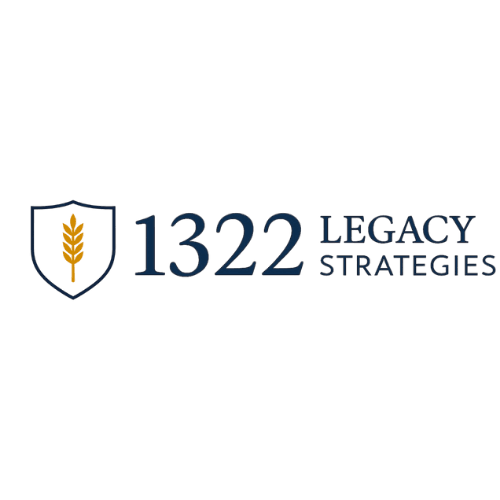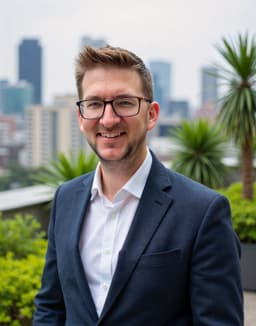For decades, American families have been sold a script:
- Save diligently into your 401(k).
- Finance your home, your cars, your vacations.
- Trust the experts to manage your savings.
- Rely on bankers for your big purchases.
It sounds like wisdom. But it’s actually dependency. A system that transfers wealth away from your household and into the hands of Wall Street firms, advisors, and commercial banks.
The result? Families work hard, save faithfully, and yet arrive at retirement or legacy planning only to realize that much of their capital has been siphoned away in the form of fees and interest.
The Mirage of Financial “Expertise”
When most people hear “financial advisor,” they imagine someone highly trained in economics, markets, and portfolio growth. But the truth is less noble.
The financial advisory industry is built on sales. Advisors are trained not primarily in economics, but in psychology: how to build trust, how to keep clients invested through market crashes, how to sell products that maximize commissions.
When your account balance drops by 20% overnight, you’ll likely hear comforting metaphors, reassurance to “ride it out,” and promises of “long-term averages.” But rarely do you hear an honest accounting of how much the advisor earns while your capital remains locked in the market.
The system doesn’t depend on your prosperity. It depends on your participation.
Death by a Thousand Cuts: The Fee Problem
Fees seem small when expressed as percentages. That’s the trick.
Imagine this scenario:
- You start with $50,000.
- You contribute $25,000 per year.
- You invest for 40 years.
- Your advisor charges “just” 1.5%.
At the end of that journey, your portfolio would be worth $5,011,602.
But without the management fee, the number would be $7,561,602.
That’s a difference of $2.5 million. Gone. Not to taxes. Not to market losses. To fees. That’s 33.72% of your portfolio — wealth that could have stayed in your family but instead flowed to the financial industry.
This is the magician’s trick: reduce the cost to its smallest visible fraction, so you don’t notice the volume of wealth lost.
The Mortgage Illusion: How Banks Multiply Their Take
The same problem shows up in mortgages.
Take a $500,000 home, 10% down, with a 30-year loan at 6.5%.
- Monthly payment (including taxes/insurance): $3,844.
- Total paid over 30 years: $1,383,950.
- Of that, $838,950 goes to the bank.
That’s not 6.5%. That’s 168% interest by volume.
Now consider that most families not only finance homes, but also cars, education, vacations, even emergencies — layering debt upon debt. The reliance on third-party finance isn’t an accident. It’s the system working as designed.
Banks profit when you stay dependent. And the more liquidity you give up to retirement accounts or locked-up investments, the more you are forced to borrow — feeding the cycle of interest transfer.
The Trap of Trust: “Just Leave It to Us”
The financial industry thrives on trust-based slogans:
- “Trust the experts with your savings.”
- “Trust the market for your retirement.”
- “Build a relationship with your banker.”
But these aren’t strategies. They’re scripts. They keep families locked in dependency, surrendering control of their most powerful tool: capital.
And here’s the real cost: when you lose control of your capital, you lose the ability to direct your financial story. You give up stewardship.
The Alternative: Infinite Banking and the Power of Control
So what’s the solution?
It isn’t “stop saving” or “avoid banks entirely.” The solution is to stop surrendering control of your money to outsiders.
Infinite Banking (IBC), pioneered by Nelson Nash, is a strategy that flips the system back into your hands. Instead of parking your money in accounts controlled by Wall Street or borrowing from banks that profit on your need, you create your own private banking system inside a specially designed, dividend-paying whole life insurance policy with a mutual company.
Here’s what makes it different:
1. You Own and Control the System
With IBC, you’re not at the mercy of a financial advisor’s commissions or a bank’s lending terms. You are the owner of the capital system. You decide when to access funds, how to use them, and how to repay yourself.
2. Liquidity When You Need It
Traditional accounts punish you for accessing your own money early. With IBC, you can access your policy’s cash value at any time — no penalties, no market risk, no gatekeepers.
This means when life happens — a car purchase, tuition, business investment, or emergency — you don’t run to the bank. You finance it yourself. The repayments return to your system, not theirs.
3. Safe, Predictable Growth
Whole life policies with mutual companies are designed for stability. Dividends, while not guaranteed, have been paid consistently for over a century by many mutual companies — through wars, recessions, and market crashes.
This means your capital grows steadily, without exposure to Wall Street volatility.
4. Tax Advantages
Properly structured, policy cash values grow tax-deferred, and loans can be accessed tax-free. Death benefits are generally income-tax free to beneficiaries. This allows families to grow and pass on wealth with less erosion from taxation.
5. Financing Life on Your Terms
Instead of draining wealth through mortgages, car loans, and credit cards, families practicing IBC use their policy cash values to finance major purchases. Every repayment replenishes their own system, compounding their family’s wealth instead of enriching banks.
6. A Legacy Engine
Infinite Banking isn’t just about you. Properly stewarded, it becomes a multi-generational strategy. Policies can be set up for children and grandchildren, ensuring that capital is always under family control — never at the mercy of Wall Street or third-party financiers.
This aligns perfectly with Proverbs 13:22: “A good man leaves an inheritance to his children’s children.”
What Infinite Banking Means for You
In plain terms: Infinite Banking restores what the financial system quietly stole — control of your capital.
- No more fees draining a third of your lifetime portfolio.
- No more mortgages and loans sending hundreds of thousands to the bank.
- No more blind trust in “experts” whose incentives don’t align with yours.
Instead:
- Your money grows in a safe, predictable environment.
- You access liquidity on your terms.
- You finance life’s needs through your own system.
- You build a lasting legacy that passes both wealth and wisdom to your children’s children.
Final Word: From Dependence to Stewardship
The current financial system is designed to keep you dependent. Advisors extract fees. Banks extract interest. And both tell you it’s for your own good.
But stewardship calls you to something higher. To take responsibility. To own your financial story. To ensure your capital serves your family, not strangers on Wall Street.
At 1322 Legacy Strategies, we believe wealth is entrusted, not random. Stewardship is the calling. And the legacy you build depends on one simple choice:
Will you keep renting your financial future to others? Or will you take back control?
Control Your Capital. Build Your Legacy.


